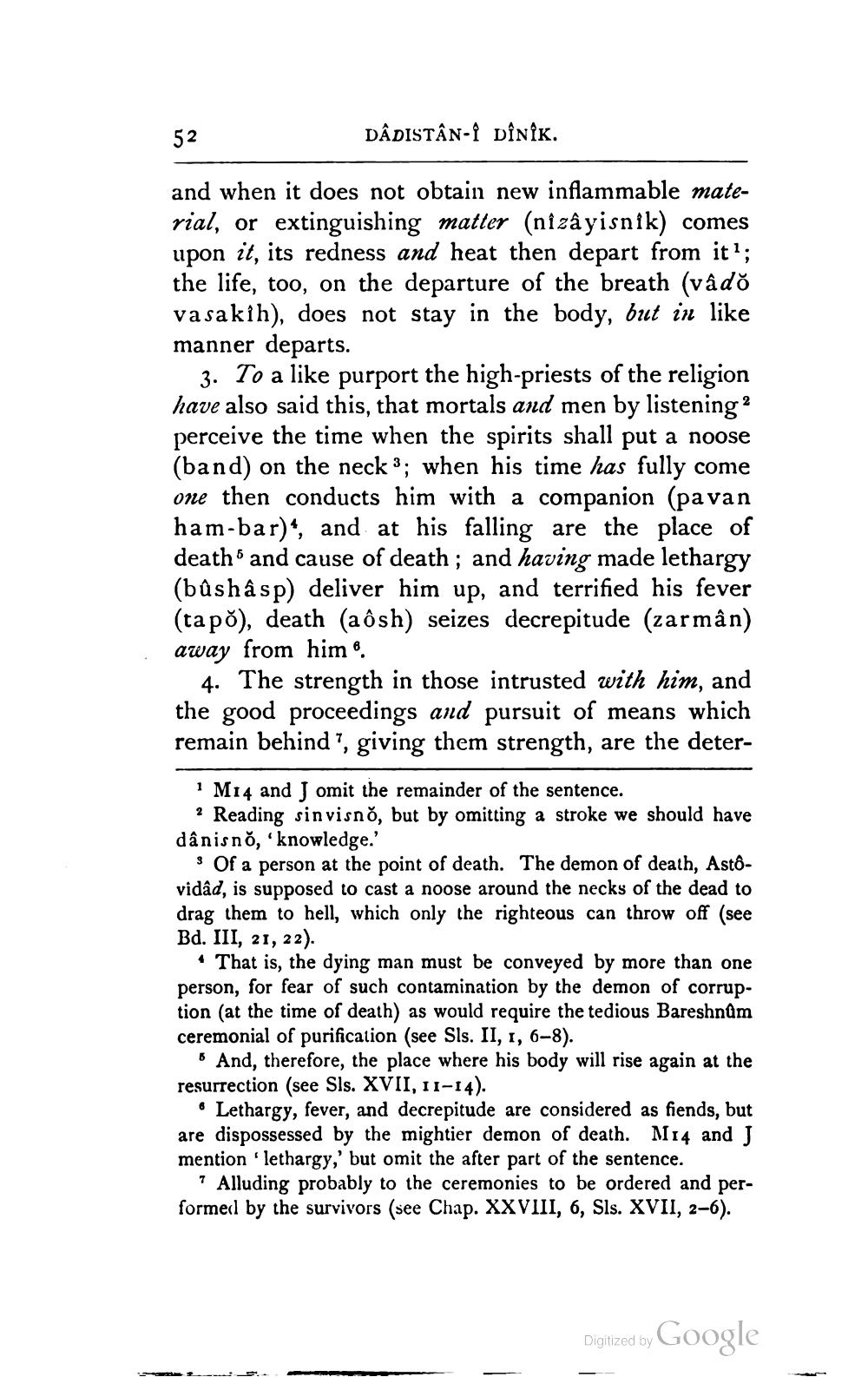________________
52
DÂDISTÂN-Î DÎNÎK.
and when it does not obtain new inflammable material, or extinguishing matter (nizâyisnik) comes upon it, its redness and heat then depart from it?; the life, too, on the departure of the breath (vado va sakih), does not stay in the body, but in like manner departs.
3. To a like purport the high-priests of the religion have also said this, that mortals and men by listening? perceive the time when the spirits shall put a noose (band) on the neck 3; when his time has fully come one then conducts him with a companion (pavan ham-bar)', and at his falling are the place of deaths and cause of death; and having made lethargy (bûshâsp) deliver him up, and terrified his fever (tapo), death (a ôsh) seizes decrepitude (zarmân) away from him .
4. The strength in those intrusted with him, and the good proceedings and pursuit of means which remain behind ?, giving them strength, are the deter
1 M14 and J omit the remainder of the sentence.
? Reading sin visno, but by omitting a stroke we should have dânisno, knowledge.
s Of a person at the point of death. The demon of death, Astovidâd, is supposed to cast a noose around the necks of the dead to drag them to hell, which only the righteous can throw off (see Bd. III, 21, 22).
• That is, the dying man must be conveyed by more than one person, for fear of such contamination by the demon of corruption (at the time of death) as would require the tedious Bareshnům ceremonial of purification (see Sls. II, 1, 6-8).
And, therefore, the place where his body will rise again at the resurrection (see Sls. XVII, 11-14).
• Lethargy, fever, and decrepitude are considered as fiends, but are dispossessed by the mightier demon of death. M14 and J mention 'lethargy,' but omit the after part of the sentence.
? Alluding probably to the ceremonies to be ordered and performed by the survivors (see Chap. XXVIII, 6, Sls. XVII, 2-6).
Diglized by Google




